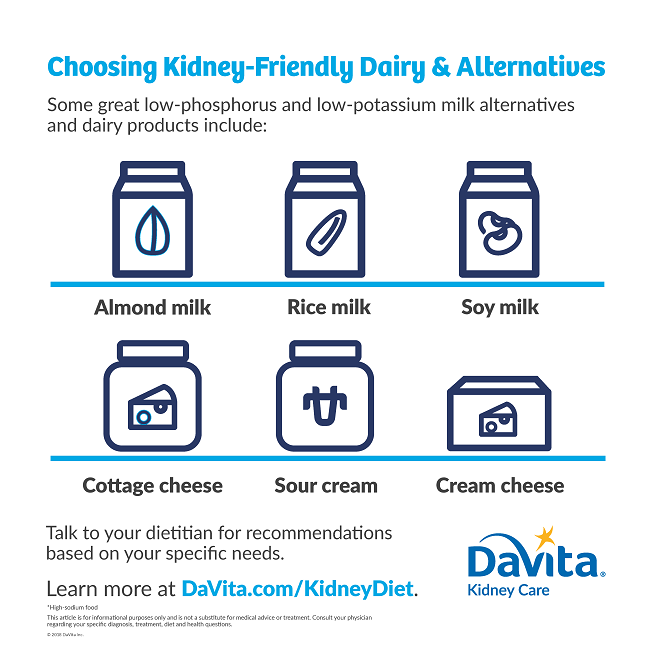Peanut Milk: The Newest Milk Alternative
Have you heard about the newest trend in milk alternatives? Move over almond milk. Peanut milk has hit the shelves. The first commercially available peanut milk is being produced by Elmhurst™ Milked and it debuted in January of 2018.
Peanut Milk and the Kidney Diet
How does peanut milk fit in the renal diet? In moderation of course! A four ounce (1/2 cup) serving of Elmhurst peanut milk contains 75 calories, 3 g protein, 70 g potassium 68 mg sodium, and 12 mg calcium. One half cup of the peanut milk contains about 16 peanuts, which equals 60 mg of phosphorus. This makes it an acceptable and tasty choice to replace other milk or milk alternatives that are higher in nutrients of concern. Elmhurst peanut milk is produced using a “cold milking” production process. It extracts nutrients and flavor from the peanuts and allows them to recombine to form a smooth, flavorful beverage. Once word of caution: the peanut-chocolate milk is twice as high in potassium. For this reason it may not be a good choice if you are limiting potassium intake.
Homemade Peanut Milk
You can also make your own peanut milk. Here is an easy recipe with nutrition information
- 1 cup unsalted raw, skinless peanuts
- 4 cups filtered water, with more for soaking
Instructions:
- Place one cup peanuts into a container and cover with filtered water.Allow to soak overnight.
- After soaking overnight, drain nuts and place in blender. Add 4 cups of filtered water and blend until smooth, approximately one minute.
- Place a fine net strainer or cheesecloth over a bowl and strain peanut milk.
- Pour the milk into a pitcher or jar and store in the refrigerator. Serve cold.
Four ounces (1/2 cup) of homemade peanut milk contains 105 calories, 5 g protein, 3 mg sodium, 128 mg potassium and 68 mg phosphorus.
Nutrient Profile
Peanut milk does not taste like cow’s milk. It has a different nutrition profile too. It is lower in protein, potassium and phosphorus. Four ounces (1/2 cup) of low-fat cow’s milk contains 4 g protein, 180 mg potassium and 115 mg phosphorus. Compare that to the values for Elmhurst and homemade peanut milk listed above.
Peanut milk is a good source of vitamin E. Vitamin E acts as an antioxidant that can slow the aging of your cells. Peanut milk also contains higher levels of magnesium and Vitamin B6. The fat in peanut milk is unsaturated.
Following the kidney diet with its many restrictions can be tough. Plus, finding substitutions for dairy may be challenging, especially if you do not know about the various milk alternatives. Peanut milk, in moderation (1/2-cup servings) can be a useful substitute. Always check with your dietitian before making changes in your kidney diet. Your dietitian can tell you how other dairy and milk alternatives fit into your kidney diet.

This article is for informational purposes only and is not a substitute for medical advice or treatment. Consult your physician and dietitian regarding your specific diagnosis, treatment, diet and health questions.

Recent Comments